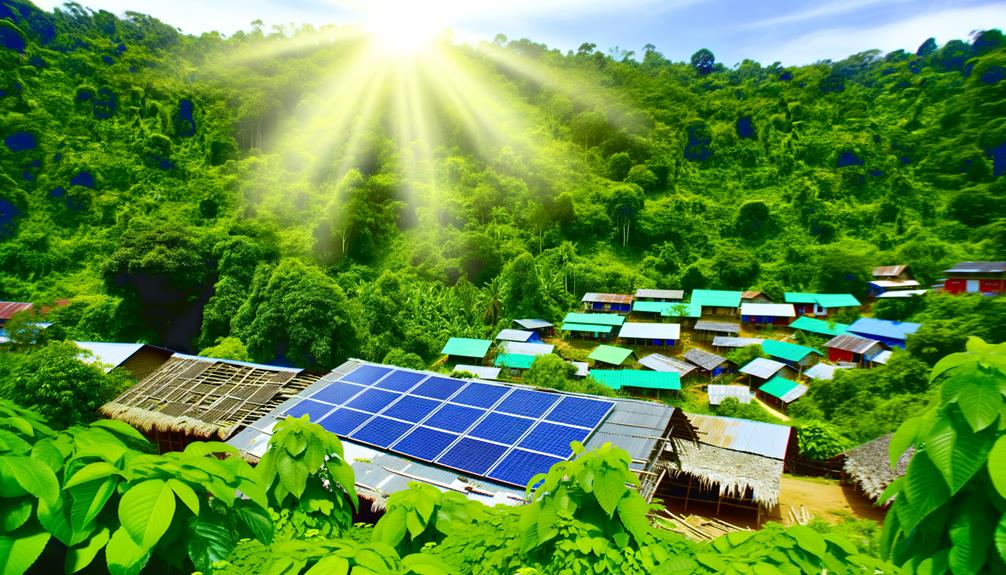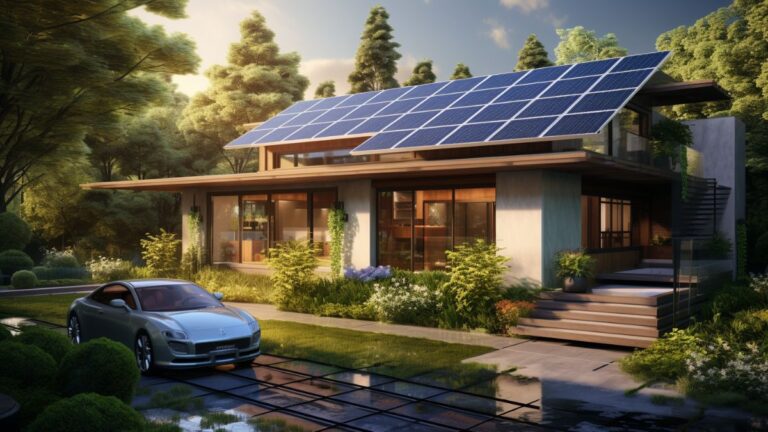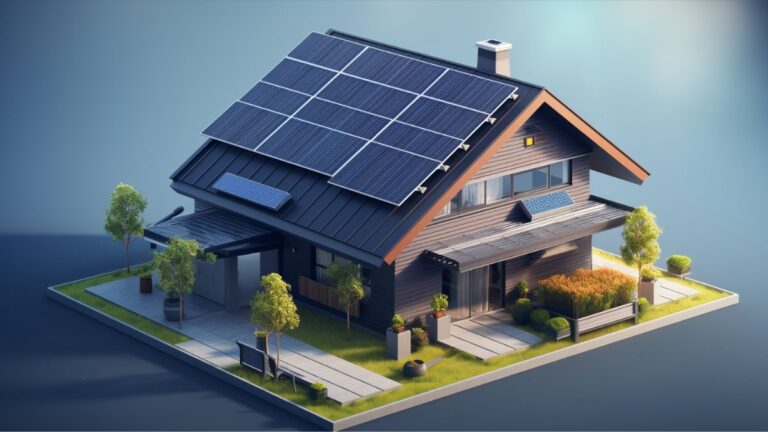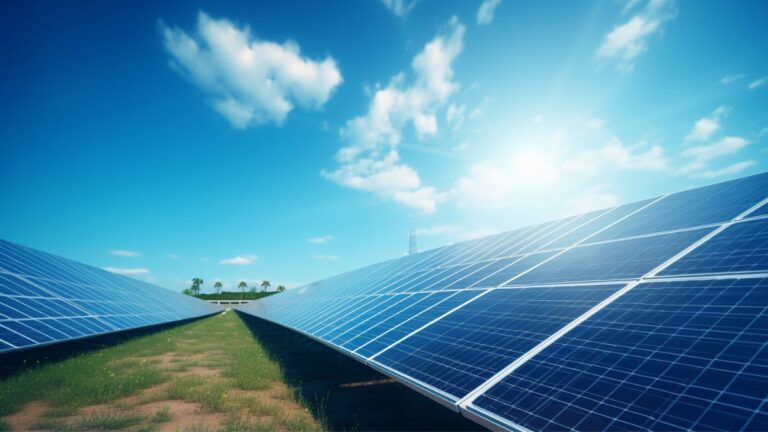What Are the Eco-Impacts of Off-Grid Solar?
Imagine a world where you can power your home without relying on traditional energy sources, where the sun’s rays provide all the electricity you need. Off-grid solar energy offers exactly that, and its eco-impacts are worth exploring further.
From reducing greenhouse gas emissions to preserving natural habitats, off-grid solar has the potential to revolutionize our approach to energy consumption. But what are the specific environmental benefits? How does it contribute to the conservation of natural resources?
In this discussion, we will delve into the eco-impacts of off-grid solar and uncover the ways in which it can shape a more sustainable future.
Key Takeaways
- Off-grid solar energy reduces greenhouse gas emissions and reliance on fossil fuels.
- Off-grid solar systems help preserve natural habitats and biodiversity by minimizing the impact on wildlife and ecosystems.
- Off-grid solar energy mitigates air and water pollution by decreasing greenhouse gas emissions and improving air and water quality.
- Off-grid solar systems contribute to the conservation of natural resources by reducing energy costs, promoting sustainability, and minimizing carbon footprints.
Reduction in Greenhouse Gas Emissions
Off-grid solar energy significantly reduces greenhouse gas emissions, providing a clean and renewable energy source that decreases reliance on fossil fuels. By not relying on fossil fuels, off-grid solar systems contribute to a reduction in carbon emissions, helping to mitigate the impacts of climate change.
Solar panels, a key component of off-grid solar power systems, convert sunlight into electricity without producing any harmful emissions. This shift towards renewable energy sources helps to combat air pollution, improve air quality, and reduce environmental pollution.
Additionally, the use of off-grid solar energy promotes cost-effectiveness and eco-friendliness, offering an environmentally friendly alternative to traditional energy production methods. By adopting off-grid solar systems, individuals and communities can play an active role in reducing their carbon footprint and enjoying the environmental benefits of clean energy.
Preservation of Natural Habitats
The preservation of natural habitats is supported by off-grid solar energy through its reduction in land-intensive energy infrastructure. Off-grid solar energy minimizes the impact on wildlife and ecosystems by eliminating the need for large power lines and associated land clearing.
By reducing reliance on traditional energy sources, off-grid solar energy helps preserve natural habitats from the destructive effects of resource extraction. Additionally, off-grid solar energy installations have a lower footprint on natural habitats compared to large-scale energy infrastructure, aiding in the preservation of biodiversity.
Through the use of solar panels, off-grid solar energy promotes the preservation of natural habitats by reducing the need for large-scale land disturbance associated with conventional energy production. This environmentally friendly alternative empowers individuals to generate their own power while minimizing their impact on the environment.
Mitigation of Air and Water Pollution
Does off-grid solar energy play a role in reducing air and water pollution? Absolutely! Off-grid solar energy has significant environmental benefits, including the mitigation of air and water pollution.
By reducing reliance on fossil fuels, off-grid solar energy helps to decrease greenhouse gas emissions, leading to improved air and water quality.
It also lessens the need for traditional power sources, which are often responsible for pollution from energy production and consumption. Additionally, off-grid solar energy systems can power water pumps, providing clean water without contributing to water pollution.
By reducing the reliance on traditional utility companies, which often rely on pollution-intensive energy sources like natural gas, off-grid solar energy helps to reduce air pollution and protect our precious natural resources.
| Effect on Air Pollution | Effect on Water Pollution | |
|---|---|---|
| Off-grid Solar Energy | Reduces greenhouse gas emissions, improving air quality | Provides clean water without contributing to water pollution |
| Traditional Power Sources | Contributes to air pollution through energy production and consumption | Potential for water pollution due to extraction and use of non-renewable resources |
| Overall Impact | Mitigates air pollution by reducing carbon emissions | Helps maintain clean water sources and protects aquatic ecosystems |
Conservation of Natural Resources
Conservation of natural resources plays a crucial role in ensuring the sustainable use and preservation of our planet’s valuable ecosystems and biodiversity. When it comes to off-grid solar energy systems, conservation becomes even more important. Here are three reasons why:
- Reduced energy costs: Off-grid solar systems allow individuals and communities to generate their own renewable energy, reducing their reliance on expensive traditional energy sources and lowering their energy bills.
- Lower carbon footprint: By harnessing the power of the sun, off-grid solar systems produce clean energy without emitting greenhouse gases. This helps to reduce carbon emissions and combat climate change.
- Energy independence: Off-grid solar systems provide a reliable source of electricity that isn’t dependent on fossil fuels. This promotes energy independence, reduces the vulnerability to price fluctuations, and enhances economic and environmental resilience.
Minimization of Carbon Footprint
Minimizing the carbon footprint is a crucial aspect of off-grid solar energy systems as they rely on renewable sources of power, reducing the need for fossil fuels and mitigating the negative impacts of greenhouse gas emissions.
Off-grid solar energy reduces carbon emissions by not relying on fossil fuels for electricity generation. Solar panels have a low carbon emission intensity, offsetting negative impacts of mining and manufacturing.
Transitioning to off-grid solar energy reduces reliance on traditional energy sources, which contribute to air pollution and negative health effects. Additionally, off-grid solar energy promotes energy efficiency, significantly reducing energy consumption and environmental impact.
By embracing this clean and sustainable alternative, you can reduce your dependence on utility companies and contribute to a cleaner, greener future. Remember to recycle solar panels to ensure their environmental sustainability.
| Key Benefits of Off-Grid Solar |
|---|
| Reduces carbon emissions |
| Low carbon emission intensity |
| Mitigates climate change impacts |
| Reduces reliance on traditional energy sources |
| Promotes energy efficiency |
Frequently Asked Questions
What Are the Ecological Impacts of Solar Power Use?
Using off-grid solar power has numerous ecological impacts. It conserves biodiversity, promotes sustainable development, reduces carbon footprint, conserves resources, preserves ecosystems, facilitates renewable energy transition, mitigates climate change, minimizes ecological footprint, protects wildlife habitats, and ensures environmental sustainability.
What Are the Environmental Benefits of Living off the Grid?
Living off the grid with renewable energy promotes sustainable living, reduces your carbon footprint, and enhances energy independence. It also leads to reduced air pollution, conservation efforts, and natural resource preservation. By choosing off-grid, you contribute to greenhouse gas emissions reduction and environmental stewardship.
What Are the Economic Impacts of Solar Power?
Off-grid solar power has numerous economic impacts. It offers cost savings, reduces electricity bills, increases property value, and creates jobs. It also promotes energy independence, clean energy access, and technological advancements, leading to long-term financial benefits and economic growth.
What Is the Negative Environmental Impact of Solar?
Off-grid solar has negative environmental impacts. It contributes to pollution concerns, energy consumption, waste disposal challenges, resource depletion, land use issues, wildlife impact, and a large carbon footprint due to the manufacturing process and use of toxic materials.
Conclusion
Off-grid solar energy offers numerous environmental benefits. One interesting statistic to consider is that the use of off-grid solar can reduce greenhouse gas emissions by up to 100%, compared to traditional energy production methods.
This means that by embracing off-grid solar, we’ve the power to make a significant impact in combating climate change and preserving our planet for future generations.
Let’s harness the sun’s energy and create a sustainable and cleaner world.






